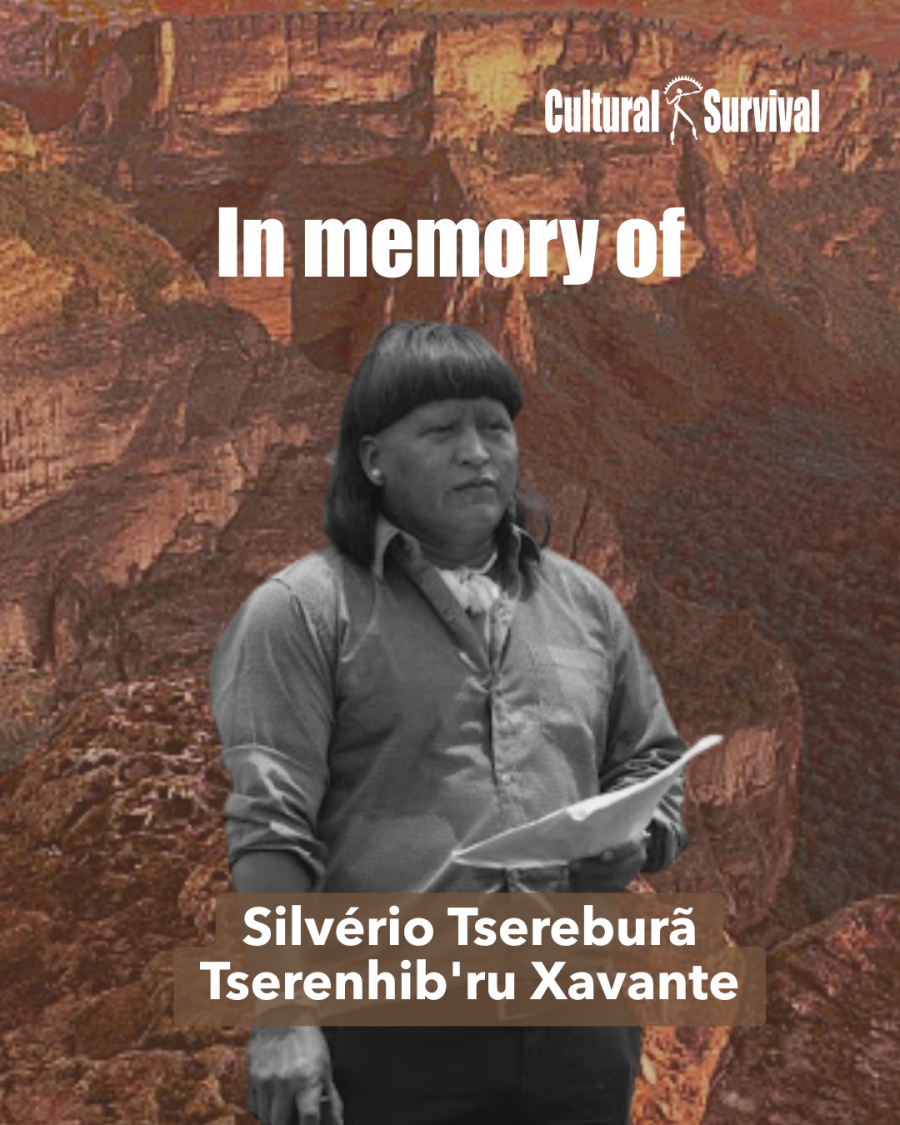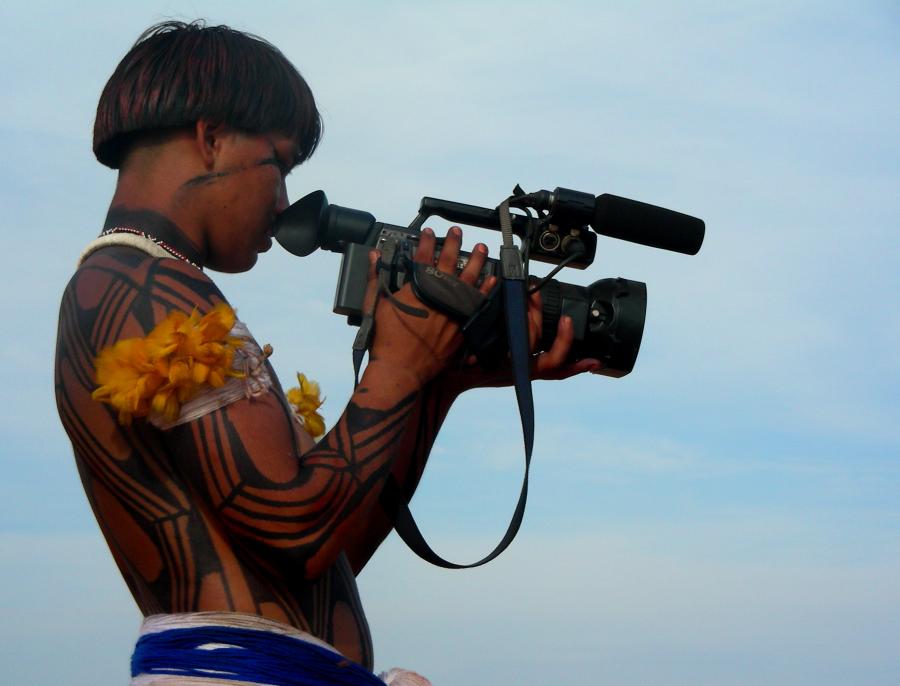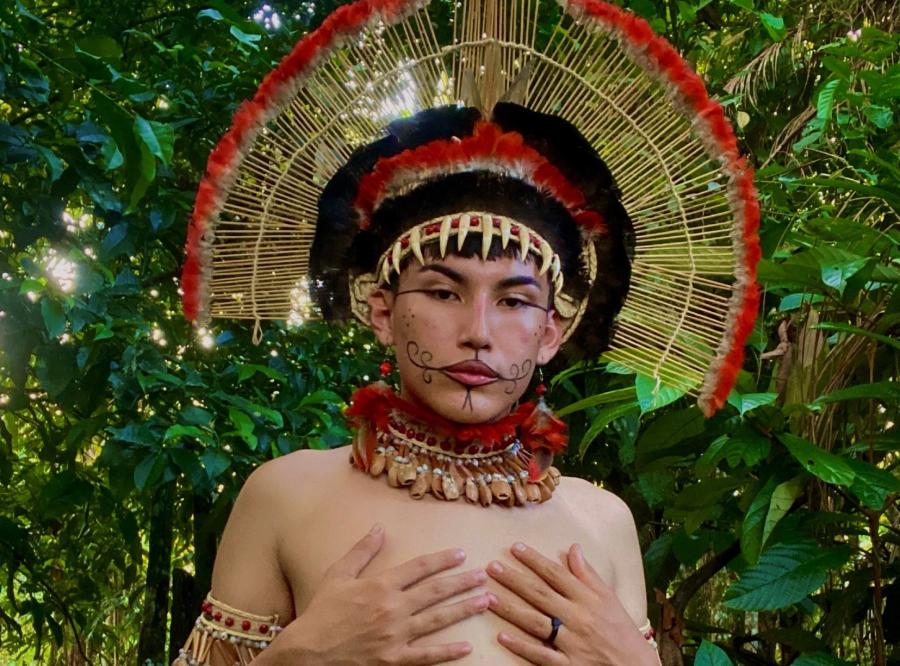
By Edson Krenak (Krenak), CS Staff
Brazil’s human rights record will be examined this November by the UN Human Rights Council at the Universal Periodic Review (UPR). In March 2022, Cultural Survival submitted a joint stakeholder report in collaboration with Comunidade Quilombola Rio dos Macacos, Munduruku Takuara community, Uka Institute, and Munduruku Institute focused on the situations of Munduruku Peoples and the Quilombola Rio dos Macacos community. The Munduruku Peoples in the Amazon region are severely impacted by illegal mining, deforestation, and violence. The Quilombola Rio dos Macacos community in the impoverished northeast region of the country faces violations of their rights by the Brazilian Navy.
Each UN Member State is examined under the Universal Periodic Review every five years. During its review, a State is to inform the other states how it has adhered to human rights standards and obligations and implemented recommendations from previous cycles, and it has to answer questions from other States and civil society about recent human rights developments in the country. The UPR is a unique process that involves all 193 UN Member States. In 2017, when Brazil was examined, the UN High Commissioner for Human Rights Prince Zeid Ra'ad Al Hussein recommended the country to:
- "Adopt further effective measures and policies aimed at promoting and ensuring the rights of Afro-Brazilian descendants, and establish mechanisms to eradicate stigma and discrimination, including awareness-raising among public officials, accountability and mechanism for redress.”
- “Establish effective consultation with indigenous peoples in all legislative and administrative measures affecting them; adopt an effective plan of actions for the demarcation and protection of indigenous lands, and provide the necessary financial resources to ensure a policy for the protection of the rights of indigenous peoples and to prevent related conflicts."
Even though the country has taken steps to make improvements on human rights, in the last three years under the Bolsonaro administration, several alarming setbacks have taken place. Cultural Survival’s report, informed by Indigenous organizations and communities, highlights the violations that Munduruku and Quilombola Peoples have suffered.
The report documents how the Bolsonaro government continues to threaten Indigenous Peoples and the environment by pursuing policies and actions that are not just harmful to rivers, forests, and animals, in particular to forest areas in the Brazilian Amazon, but also to the lives and safety of Indigenous and Quilombola communities in those areas. The demarcation of Indigenous and Quilombola territories–a process of recognition, delimitation, and administrative regularization of Indigenous lands–has been debilitated and halted by Bolsonaro since January 2019, a blunt refusal to follow the Constitution and international human rights mechanisms.
The stakeholder report also covers how Fundação Nacional do Índio (“Funai” - Indian Affairs agency), a federal agency responsible for respecting, protecting, and fulfilling the rights of Indigenous Peoples to their lands and territories, became, under this government, subordinated to the interests of missionaries, the agricultural sector (“ruralistas”), and mining interests. Bolsonaro and his ministers have delivered many speeches and communications that led independent groups to invade Indigenous lands for mining and logging. Furthermore, this promotion of mining and exploitation of the forests, rivers, and Indigenous lands occurred during the COVID-19 pandemic and contributed to the increase in deaths of Indigenous people, leaving several communities without their Elders and leaders.
Because of the 22 percent increase in deforestation between 2020 and 2021, the largest deforestation rate in 15 years, the Munduruku Peoples and other Indigenous Peoples are struggling to keep their homes safe. Illegal mining is common throughout the Amazon and is happening on Munduruku, Kayapó, Yanomami, and Xikrin do Cateté lands and people are suffering as a result of mercury contamination of water sources and eating contaminated fish and have experienced headaches, skin conditions, food poisoning, and high rates of birth defects.
The Rio dos Macacos Quilombola community has also been discriminated against and overlooked by local authorities and the justice system. They have no access to basic services like ambulances and schools. After the construction of the Aratu Naval Base in the early 1970s in their territory, much of the Rio dos Macacos community was forcibly displaced. The Navy construction split their territory by building military residences and houses in the middle of Quilombola land, dividing the community.
The report makes 16 recommendations to the State of Brazil in regards to Indigenous Peoples, to:
- Establish and implement clear procedures for obtaining the FPIC of Indigenous Peoples, in alignment with UNDRIP and ILO 169, ensuring the full participation of the Quilombolas, the Munduruku, and all Indigenous Peoples in decision-making processes related to projects and legislative and administrative measures that may affect them.
- Implement Indigenous Peoples’ constitutional rights, and to accomplish this, ensure adequate resources are designated in the annual budget, including sufficient funding for FUNAI to carry out its functions.
- Adopt an effective action plan to complete the demarcation of Indigenous lands as indicated in Article 231 of the Constitution and prevent land conflicts.
- Allocate funding directly to Quilombola and Indigenous women’s organizations and programs in the areas of anti-violence, food security, and health-related services to ensure that women in remote communities may exercise self-determination to address these issues.
- Improve access to emergency and healthcare services for Indigenous and Quilombola Peoples in remote communities, especially women, that is culturally and linguistically appropriate.
- In consultation with Indigenous Peoples, develop and implement policies that address infant mortality, malnutrition, health, education, and access to basic sanitation for all Indigenous Peoples. Provide safe drinking water and improved sanitary conditions for Munduruku Peoples.
- Immediately halt mining and deforestation activities on Munduruku territories and evacuate illegal miners that violate Munduruku territorial rights, and establish permanent security forces in Munduruku areas to ensure the physical security of communities in the face of physical violence perpetrated by illegal miners.
- Reconsider the demarcation of land in the Quilombola territory of Rio dos Macacos to guarantee the Brazilian Navy does not encroach on the rights of the Quilombola Peoples by a) ensuring their access to the river for cultural and spiritual purposes, and b) facilitating an entrance from the river for the Quilombola community to ensure their free and safe movement.
- Take measures to ensure the highest attainable standard of living conditions and physical, economic, and cultural security for the Quilombola in Rio dos Macacos, particularly ensuring access to food, housing, electricity, transport, health care, clean water, sanitation, and educational infrastructure.
- Strengthen mechanisms for the protection of Indigenous children’s rights and health.
- Invest in poverty alleviation policies and effective implementation to reduce social and economic inequalities, including the creation of conditions for better sources of income, in particular for people in rural areas.
- Undertake a comprehensive audit of the health district accounts responsible for Indigenous health to determine why resources are not reaching Indigenous Peoples and ensure that they do.
- Establish a mechanism that enables prompt and correct judicial decisions in strict compliance with constitutional and international law on the territorial rights of Indigenous Peoples.
- Rescind and/or reject bills proposed or passed during the Bolsonaro administration which violate Indigenous Peoples’ rights to FPIC and other rights, including Bill 490/2007, Bill 191/2020, Bill 3729/2004, and Bill 510/2021.
- Implement existing UPR recommendations related to the protection of Human Rights Defenders.
- Create a national action plan for implementing Indigenous Peoples’ rights based on the World Conference on Indigenous Peoples’ Outcome Document.
Ahead of and at the review in November 2022, all UN member states have an opportunity to press Brazil on its human rights record, which is full of flagrant violations of environmental and Indigenous Peoples’ rights. We also urge civil society all over the world to join in supporting Indigenous and Quilombola communities in Brazil.
Read the full joint stakeholder report here.
Photo by Hiparidi Top’tiro.



